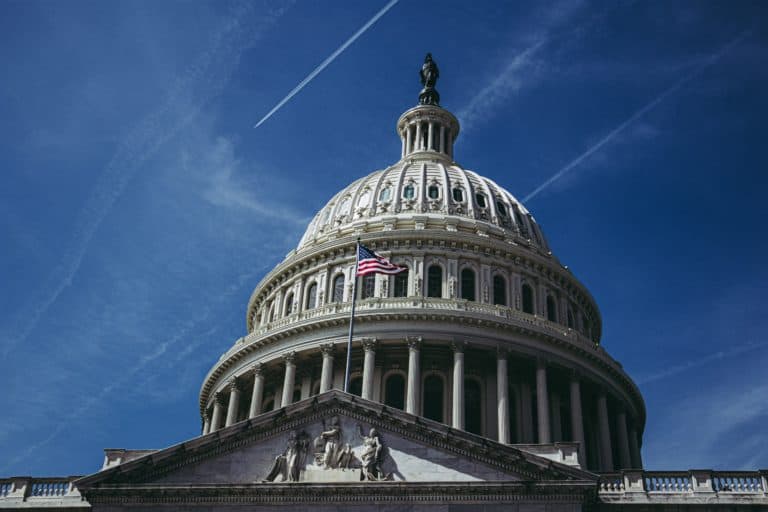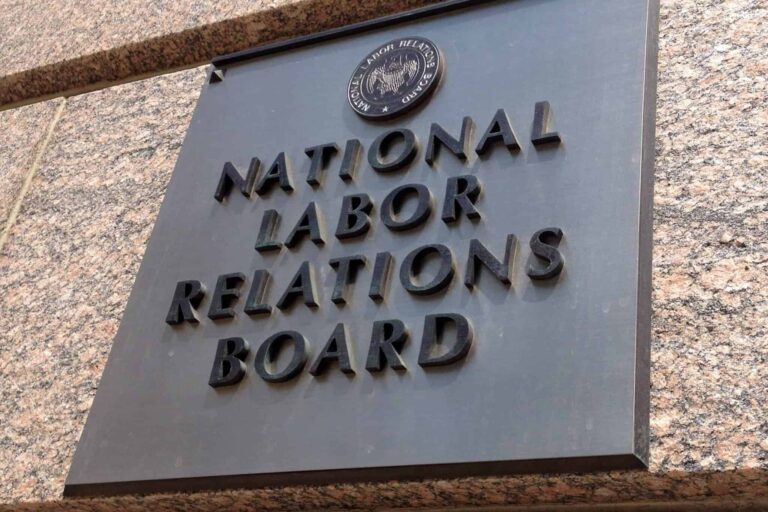
Jason Vazquez is a staff attorney at the International Brotherhood of Teamsters. He graduated from Harvard Law School in 2023. His writing on this blog reflects his personal views and should not be attributed to the IBT.
In July 2022, the NLRB General Counsel urged the Board in a filing to fashion a monetary remedy designed to compensate employees when their employer violates federal labor law by refusing to bargain for a CBA with their freshly formed union. As I wrote at the time, Abruzzo’s motion signaled the possibility of a considerable expansion of the Board’s remedial arsenal, one that would enable the agency “to more meaningfully redress and deter unlawful employer practices which fundamentally undermine the collective bargaining process.” Although Abruzzo’s motion was filed fifteen months ago, the Board’s Democratic majority has yet to adopt the remedy she has now been advocating for more than two years. But the agency has given indications that it is likely to move on this issue soon.
Section 8(a)(5) of the NLRA prescribes that an employer must “bargain collectively with the representative of his employees,” which is elaborated in § 8(d) as a duty to “confer in good faith with respect to wages, hours, and other terms and conditions of employment.” To a considerable extent, the NLRB’s inability to effectuate the policies underlying federal labor law—namely, to facilitate unionization and collective bargaining (and, more broadly, to democratize the political economy and redistribute wealth and power to the working class)—is ascribable to the severe deficiencies of the remedial scheme the statute, as presently interpreted, prescribes, which generations of progressive scholars and labor lawyers have bemoaned. Although the concept of good-faith bargaining embodied in §§ 8(a)(5) and (d) lies at the heart of the entire statutory framework, the Board’s conventional remedy for transgressions of it is a largely empty one: an administrative order instructing the employer to bargain, or, in other words, to do what it was already statutorily obliged to do. This “counter-productive” approach, as the U.S. Court of Appeals for the D.C. Circuit observed in 1970, in effect operates “to reward an employer’s refusal to bargain.”
Yet, in the now-infamous Ex-Cell-O Corp., issued no more than a few months after the D.C. Circuit’s ruling, the Nixon NLRB held that it was not statutorily empowered to impose the 8(a)(5) remedy envisioned by the court. Such a remedy would be calculated to afford monetary relief to employees in the amount of additional wages or benefits they would conceivably have secured had the employer engaged in the good-faith bargaining contemplated by the Act.
The Ex-Cell-O doctrine has managed to resist sharp waves of academic criticism and persist for decades. However, in a memo issued in September 2021, GC Abruzzo expressed interest in encouraging the Board to dethrone the Ex-Cell-O regime and displace its toothless bargaining order with the more expansive make-whole remedy contemplated by the D.C. Circuit more than five decades ago. This is precisely what she sought in her July 2022 motion.
The proceeding in which Abruzzo filed her original motion, Thrive Pet Healthcare, settled before the Board could address the merits. In the following months, however, the GC renewed her request in nearly a dozen cases which the Board has since adjudicated. In each such decision, the Board deployed a strategy calculated to sidestep the GC’s remedial proposal: “sever[ing]” the issue and reserving it “for further consideration.” Indeed, the Board has to date managed to evade the GC’s make-whole request in at least ten cases, spanning from September 2022 to September 2023, by employing, verbatim, the following four sentences:
In addition, the General Counsel requests that we adopt a compensatory remedy requiring the Respondent to make its employees whole for the lost opportunity to bargain at the time and in the manner contemplated by the Act. To do so would require overruling Ex-Cell-O Corp., and outlining a methodological framework for calculating such a remedy. The Board has decided to sever this issue and retain it for further consideration to expedite the issuance of this decision regarding the remaining issues in this case. The Board will issue a supplemental decision regarding a make-whole remedy at a later date.
372 NLRB No. 12.
The Board has not yet released a supplemental decision in any of these cases, all of which are currently enmeshed in enforcement litigation in the federal appellate courts. Some of the reviewing circuits have expressly acknowledged that the GC “asked the Board to order a make-whole remedy whereby [the employer] would compensate the Union for its lost opportunity to bargain.” But these courts have found that the Board’s refusal to entertain the issue in the first instance forecloses them from doing so.
*
It is disappointing that the Board has so far exhibited a measure of reluctance, or at least a diminished sense of urgency, to adopt the § 8(a)(5) monetary remedy which the General Counsel has repeatedly placed before it. As Starbucks’ relentless intransigence over the past two years has illustrated, an employer’s unlawful refusal to negotiate a first contract can seriously undermine—even devastate—a new union. Such conduct potently subverts the purpose and vision underlying the entire scheme federal labor law establishes. It is true that delimiting the precise contours of a § 8(a)(5) compensatory remedy, not to mention formulating a methodological framework to calculate one, presents a challenging and nuanced undertaking. It is thus conceivable that the Board’s delay reflects nothing more than a careful effort to craft the order in such a way as to maximize its capacity to survive the judicial hostility an 8(a)(5) make-whole remedy is likely to encounter in the federal courts. Moreover, the agency has been busy with other useful work in recent weeks. In any event, the agency must move (reasonably) quickly on the issue, for its prolabor majority is guaranteed only until next December.










Daily News & Commentary
Start your day with our roundup of the latest labor developments. See all
July 11
Regional director orders election without Board quorum; 9th Circuit pauses injunction on Executive Order; Driverless car legislation in Massachusetts
July 10
Wisconsin Supreme Court holds UW Health nurses are not covered by Wisconsin’s Labor Peace Act; a district judge denies the request to stay an injunction pending appeal; the NFLPA appeals an arbitration decision.
July 9
In Today’s News and Commentary, the Supreme Court green-lights mass firings of federal workers, the Agricultural Secretary suggests Medicaid recipients can replace deported farm workers, and DHS ends Temporary Protected Status for Hondurans and Nicaraguans. In an 8-1 emergency docket decision released yesterday afternoon, the Supreme Court lifted an injunction by U.S. District Judge Susan […]
July 8
In today’s news and commentary, Apple wins at the Fifth Circuit against the NLRB, Florida enacts a noncompete-friendly law, and complications with the No Tax on Tips in the Big Beautiful Bill. Apple won an appeal overturning a National Labor Relations Board (NLRB) decision that the company violated labor law by coercively questioning an employee […]
July 7
LA economy deals with fallout from ICE raids; a new appeal challenges the NCAA antitrust settlement; and the EPA places dissenting employees on leave.
July 6
Municipal workers in Philadelphia continue to strike; Zohran Mamdani collects union endorsements; UFCW grocery workers in California and Colorado reach tentative agreements.